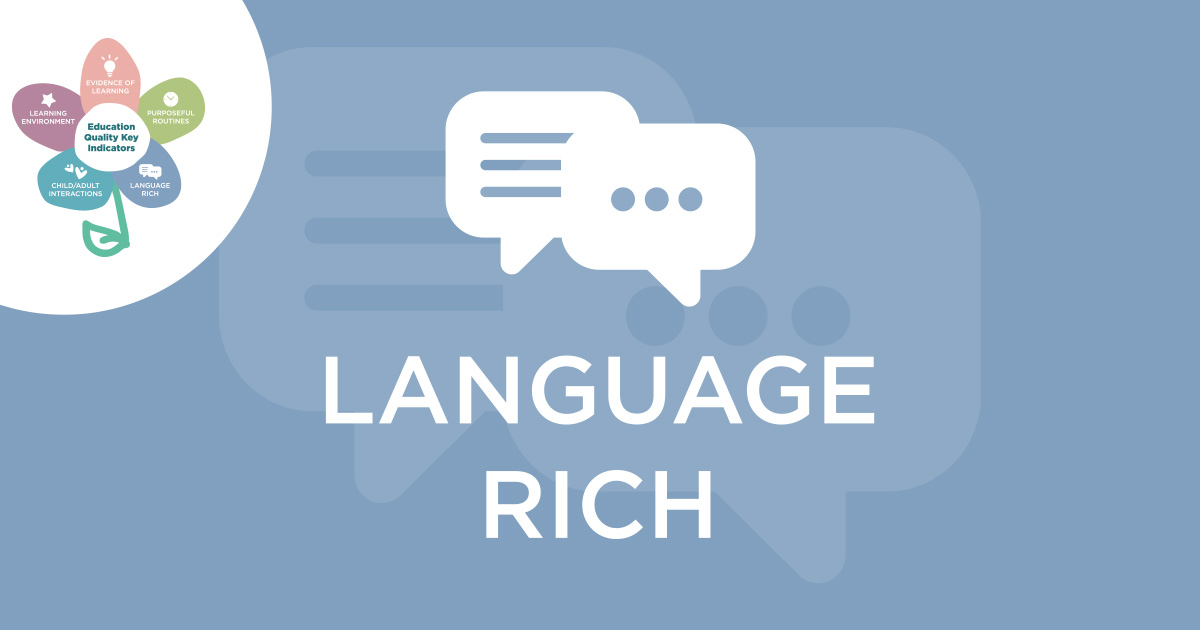- 844.422.9533
- Schedule a Tour

To provide the best early learning experience, our teachers are focused on providing a safe, thoughtful, nurturing environment where children can play and explore with confidence. In each classroom, we’ve been working to prioritize what we call Education Quality Indicators (EQI):
By putting these practices into place, we encourage positive growth for every member of our school community and foster collaborative relationships between children, families, and teachers.
Language Rich
This month, we’re going to focus on the final EQI in our blog series. The importance of building a language-rich environment in the classroom to support foundational development. As early educators, we work to cultivate skills in the areas of thinking, communicating, oral language, and early literacy. As children progress through milestones, language-rich experiences give them opportunities to:
Think | Communicate | Speak | Listen | Read | Write
Children are naturally very clever communicators. They make meaning of and “read” the world around them long before they speak in sentences or learn to read. Our job as caregivers is to help them build connections that allow them to express their experiences, thoughts, and curiosities.
So, what does this look like in practice?
- Authentic and responsive back-and-forth interactions and conversations:
- We respond to an infant’s cues to reinforce early efforts to communicate
- We echo a toddler’s single-word requests to make meaning evident and explain actions
- We ask preschoolers questions to promote critical thinking and expand skills - Interactive nursery rhymes, fingerplays, songs, and stories
- Fine motor skill support through pinching, grasping, mark-making, and scribbling
- Labeling classroom areas, such as cubbies, shelves, libraries, photos, etc.
- Reading out loud while pointing at and following the words as they’re said
Purposeful routines support language development too! Transitions between activities can be a meaningful time to narrate what is happening throughout the day. Talking through actions, modeling social connections, and asking questions are all ways to encourage positive interactions and conversations.
The Benefits
At every age, teachers ask questions and build upon children’s conversations and interests. This encourages thinking skills, communication, and understanding. We also include open-ended questions that begin with the words why and how to promote deeper thinking and thoughtful connections.
A language-rich environment sets the stage for children to meet developmental milestones in literacy and find true joy in learning. Our classroom environments create future readers, writers, and thinkers!
